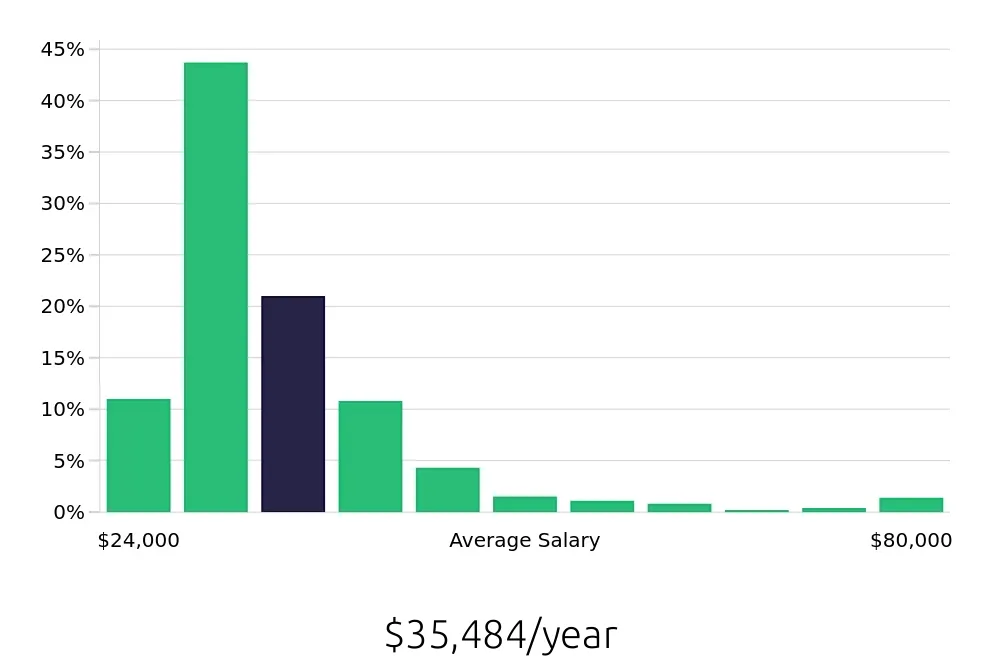Position
Overview
A farm laborer plays a crucial role in the agricultural sector. They work on farms, performing a variety of tasks that support crop production. Duties include planting, tending, and harvesting crops. Farm laborers also prepare the soil, apply fertilizers and pesticides, and operate farm machinery. They often work long hours, especially during planting and harvesting seasons.
In addition to fieldwork, farm laborers may be responsible for animal care. This includes feeding, grooming, and ensuring the well-being of livestock. They also clean and maintain farm equipment and facilities to ensure a safe and efficient working environment. Farm laborers work closely with farm managers and other agricultural workers to meet production goals and deadlines. Their physical stamina and ability to work in various weather conditions are vital to the success of the farm.
Becoming a farm laborer can open the door to a rewarding career. It involves working outdoors and supporting agricultural production. The steps to become a farm laborer are clear and achievable. By following these steps, one can secure a position in this vital industry.
Here are the steps to embark on a career as a farm laborer:
Follow these steps to build a successful career in farm labor. Each step is important and brings you closer to a fulfilling job. By completing these steps, one can enter the field with confidence and skill.
The time it takes to become a farm laborer varies. Most workers start with little to no prior experience. Employers often provide on-the-job training. This training usually takes a few days to a few weeks. Some workers may start in entry-level positions. They gain experience and skills over time. This allows them to take on more complex tasks.
In general, becoming fully skilled in farm labor takes longer. With experience, workers learn to use equipment safely. They also learn to handle different types of crops. Many farm laborers start early in their careers. They often gain more skills with each season. This steady progress helps them advance in their roles. Hard work and dedication can lead to greater responsibilities. These may include supervising other workers or managing small teams.
A Farm Laborer is responsible for performing various tasks on a farm, including planting, cultivating, and harvesting crops. This role involves physical labor and may require working in different weather conditions. Farm Laborers may also be responsible for maintaining farm equipment and grounds.
Responsibilities:
Qualifications
A career as a farm laborer involves working in agricultural settings. This role may include planting, tending to crops, and harvesting. It is a hands-on job that takes place outdoors. Farm laborers often work long hours and may face physical demands.
Those considering this path should know about both the positives and negatives. Working on a farm can be rewarding. Farm laborers witness the fruits of their labor in the form of crops. This role provides the satisfaction of contributing to food production. The job also offers the chance to be outdoors and enjoy nature.
However, the career has its challenges. Farm laborers often work in all types of weather. This means hot sun, cold rain, and even snow. The physical demands can be tough on the body. Lifting heavy items and standing for long hours can be tiring. Despite these challenges, the role of a farm laborer can offer a sense of purpose and community.
Understanding the pros and cons can help someone decide if this career is right for them.
Consider the following:
Looking to work in agriculture? Farm Laborer jobs offer a promising opportunity. The Bureau of Labor Statistics (BLS) reports an average of 114,700 job positions available each year. This means steady employment opportunities for those in the field. The role of a Farm Laborer is essential in producing the food that feeds communities.
However, potential job seekers should be aware of the job outlook. The BLS predicts a 2.0% decrease in job openings from 2022 to 2032. This decline is due to advancements in farming technology and changes in farming practices. Despite this, the demand for Farm Laborers remains stable, offering a reliable career path for those willing to adapt and learn new skills.
Compensation for Farm Laborers is also a key consideration. The BLS reports an average annual salary of $36,910 and an hourly rate of $17.75. These figures reflect the essential nature of the work and the physical demands involved. While the job may require hard work, it also provides a clear path to earning a steady income and contributing to the agricultural sector.
